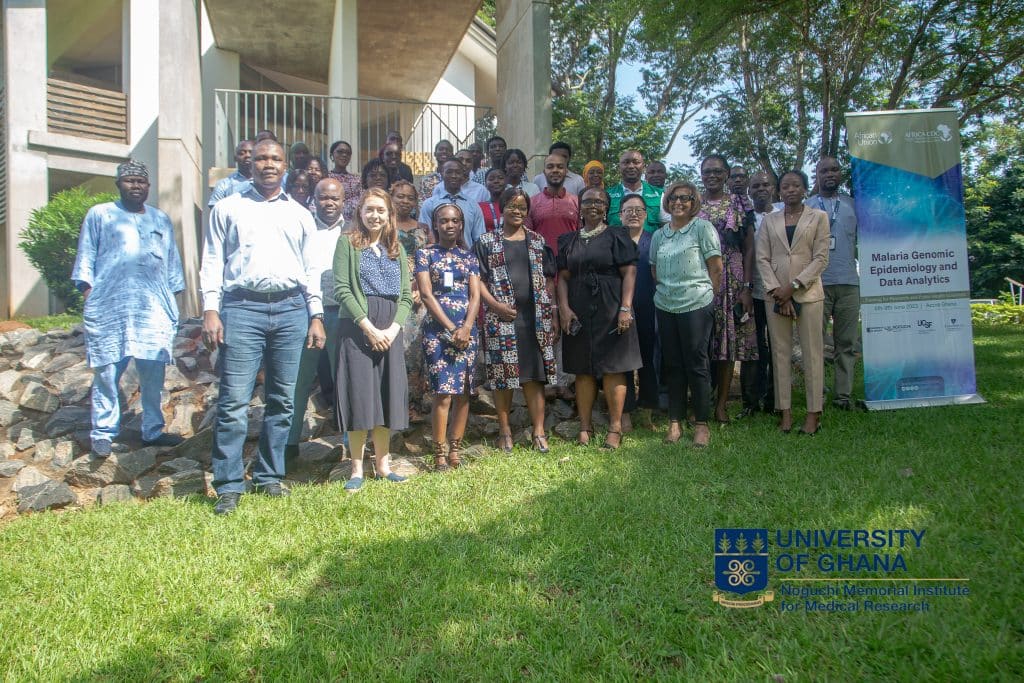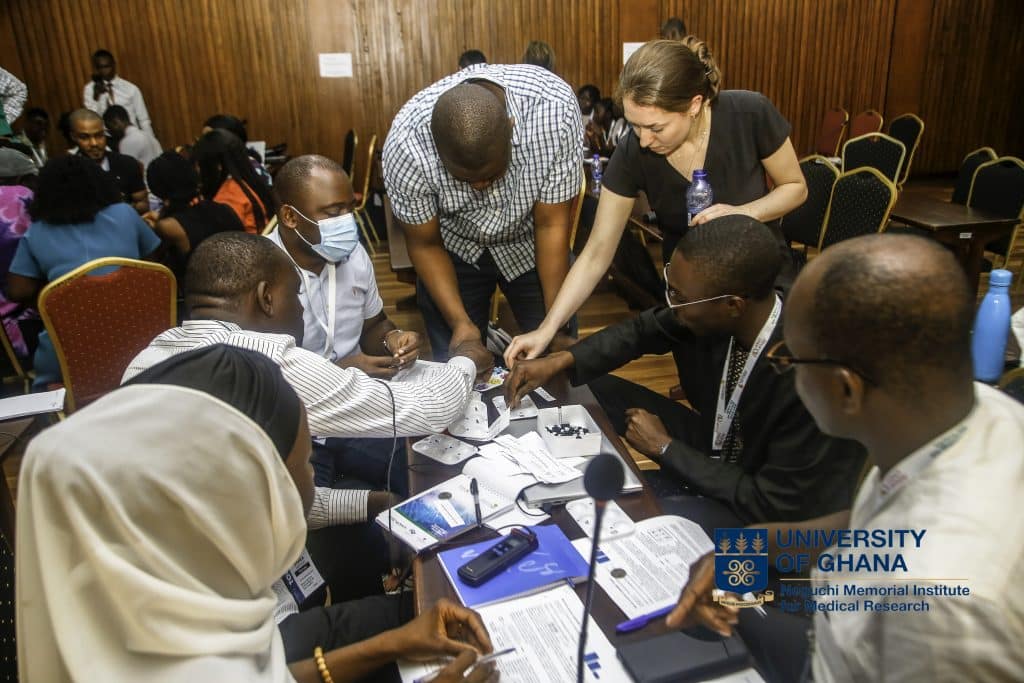The Institute in collaboration with the Africa Centres for Disease Control and Prevention (Africa CDC), Johns Hopkins University, University of California, San Francisco and the National Institute for Communicable Diseases, South Africa organized a five-day training workshop on Malaria Genomic Epidemiology and Data Analytics for research and public health scientists.
The training workshop held from 5th – 9th June, 2023 brought together twenty (21) research and public health scientists from thirteen (13) African Union Member States, mostly from the Western Regional Collaborating Centers (RCC) for five days of incisive learning, sharing, knowledge and experience, and practical training on how to use knowledge and skills in malaria genomic epidemiology, evolution, drug resistance, data analytics, and integration of genomic datasets with epidemiological metrics.

Prof. Dorothy Yeboah-Manu, Director, NMIMR addressing participants
Prof. Dorothy Yeboah-Manu, Director, NMIMR in the opening remarks indicated that the conventional and epidemiological approaches to eliminating malaria have been very useful hence the importance of malaria genomic epidemiology cannot be overemphasized.
“We have come to a stage where we need to get tools that have better resolution and that is what genomic epidemiology provides”, Prof. Yeboah-Manu added.
The workshop aimed at providing participants with intensive and extensive knowledge on malaria genomic epidemiology and data analytics. Through this, participants will be able to analyze, visualize, and interpret malaria genomic data and understand the public health relevance of generating and sharing genomic data on operationally relevant timescales.

Dr. Anita Ghansah, trainer presenting to participants
Dr. Anita Ghansah, Senior Research Fellow at the Department of Parasitology explained that genomic epidemiology use cases such as monitoring antimalarial resistance and diagnostic resistance will readily provide malaria control and elimination programs in Africa with timely information to support data-driven policy making and implementation.
“It is important to engage public health personnel as partners in research. This workshop helped researchers understand public health priorities and public health personnel understand how genomic epidemiology of malaria may provide data to meet these needs”, Dr. Ghansah added.

Trainers engage participants
Participants were excited about the quality of the organization of the workshop, particularly, the focus, approach and delivery of the various modules.
Mr. Kwasi Agyenkwa-Mawuli, a participant from Ghana recounted that the workshop has given him insights into different aspects of malaria epidemiology and surveillance and how that affects his analysis and interpretation of data as a bioinformatician.
“Henceforth, I will not view my analysis in isolation but rather as a part of a broad spectrum of activities geared towards a finite goal of effectively monitoring malaria prevalence and eliminating it with effective implementation of health policies. This certainly adds a new dimension to my work and makes me see my role in the bigger picture of malaria surveillance and eradication”, he said.
The workshop was facilitated by high-level researchers from Africa CDC, Johns Hopkins University and University of California, San Francisco, National Institute for Communicable Diseases, South Africa including research fellows of NMIMR.

Prof. Dorothy Yeboah-Manu, Director, NMIMR in a group photograph with trainers and participants

